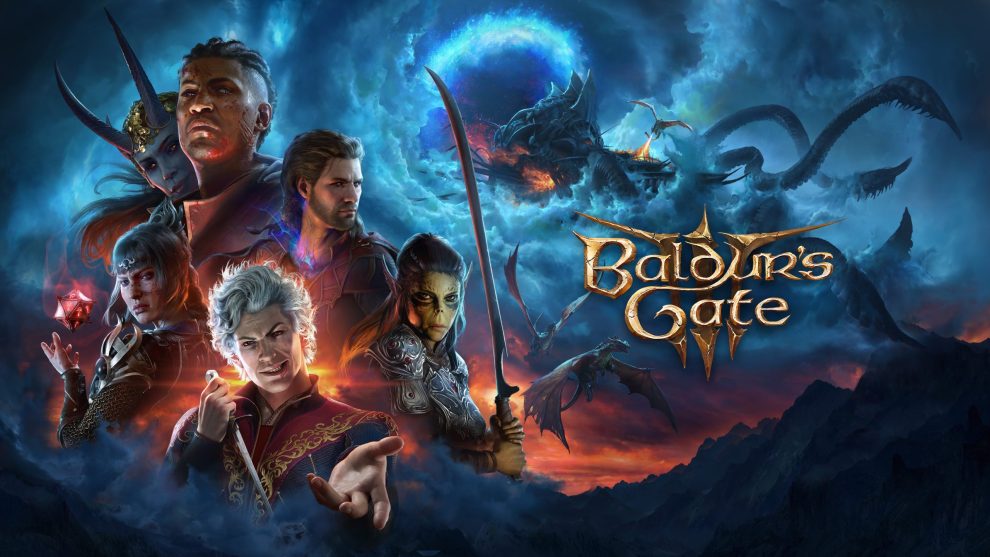Larian Studios, the developer behind the critically acclaimed Baldur’s Gate 3, has taken a public stand against scalpers attempting to profit from the game’s popularity. Michael Douse, the studio’s outspoken publishing director, has thrust the issue into the spotlight with a series of scathing online comments, igniting a fierce debate about ethics, pricing, and accessibility in the modern gaming landscape.
Baldur’s Gate 3, the long-awaited sequel to one of the most beloved RPG franchises in gaming history, has become a flashpoint in the ongoing war against scalping. As demand for the game soared, opportunistic resellers quickly moved to exploit the situation, buying up physical copies and limited editions to resell at inflated prices.
Enter Michael Douse, Larian Studios‘ publishing director, who has never been one to mince words. In a series of tweets that quickly went viral, Douse didn’t just disapprove of scalpers – he eviscerated them.
Scalpers are the parasites of the gaming industry,” Douse wrote in one particularly fiery post. “They add no value, create artificial scarcity, and profit off the passion of genuine fans. We at Larian absolutely condemn this practice and are working on ways to ensure our games reach the hands of real players, not opportunistic middlemen.
Before delving deeper into Larian’s stance, it’s crucial to understand the scalping phenomenon and why it’s become such a contentious issue in the gaming world.
Scalping, in the context of consumer goods, refers to the practice of buying high-demand items with the sole intention of reselling them at a significantly higher price. This practice has long been a thorn in the side of the entertainment industry, from concert tickets to limited edition collectibles. In recent years, it has become increasingly prevalent in the gaming world, particularly with the release of new consoles and highly anticipated games.
Dr. Elena Rodriguez, an economist specializing in digital markets, explains the underlying dynamics: “Scalping thrives in situations where demand outstrips supply, and where there’s a segment of consumers willing to pay premium prices to secure a product immediately. The video game industry, with its passionate fan base and culture of day-one releases, is particularly vulnerable to this practice.
In the case of Baldur’s Gate 3, scalpers have targeted not just the standard edition of the game, but also limited collector’s editions and promotional items. Some resellers have been spotted listing these items at prices several times higher than their retail value.
While Douse’s comments have garnered the most attention, they represent more than just one executive’s personal opinion. They reflect a broader philosophy at Larian Studios, a company that has built its reputation not just on creating great games, but on fostering a close and respectful relationship with its player base.
Swen Vincke, CEO of Larian Studios, expanded on the company’s position in a recent interview: “At Larian, we believe in fair play – not just within our games, but in how those games reach our players. Scalping goes against everything we stand for. It’s not just about the money; it’s about respecting the community that has supported us and ensuring that our games are accessible to all who want to play them, not just those who can afford to pay exorbitant prices.
This stance is not merely rhetorical. Larian has backed up its words with actions, implementing several measures to combat scalping:
1. Increased Production: The studio has ramped up production of physical copies and collector’s editions to meet demand and reduce scarcity.
2. Pre-Order Limits: Stricter limits have been placed on the number of copies a single customer can pre-order.
3. Direct Sales: Larian has expanded its direct-to-consumer sales channels, giving them more control over who is purchasing their products.
4. Digital Focus: The studio has been encouraging digital purchases, which are inherently more difficult to scalp.
Larian’s outspoken stance against scalping has not gone unnoticed in the wider gaming industry. Other developers and publishers are watching closely, with some already following Larian’s lead.
John Anderson, CEO of indie studio Pixel Dreams, voiced his support: “What Larian is doing is commendable. They’re using their platform to address an issue that has plagued our industry for too long. It’s inspiring to see a major player take such a strong ethical stance.”
The gaming community, for its part, has largely rallied behind Larian. Social media has been flooded with messages of support, with many players sharing their own frustrating experiences with scalpers.
Sarah Thompson, a long-time Baldur’s Gate fan, expressed her appreciation: “It’s refreshing to see a company actually stand up for its players like this. Scalping has ruined too many launches for me, and it’s about time someone with influence called it out.”
While public opinion has been overwhelmingly against scalping, some defend the practice as a natural result of market forces.
Mark Williams, who describes himself as a “resale entrepreneur,” argues: “We’re simply meeting a market need. If people are willing to pay higher prices for immediate access, why shouldn’t we facilitate that? It’s basic supply and demand.”
This argument, however, finds little sympathy from Douse and Larian. In a follow-up statement, Douse rebutted: “Calling scalping ‘entrepreneurship’ is like calling pickpocketing ‘involuntary donation collection.’ It adds no value to the product or the community. It only serves to exploit and divide.”
The controversy surrounding Baldur’s Gate 3 scalping has reignited discussions about the legal and ethical implications of the practice.
Currently, the legality of scalping varies by jurisdiction. While some countries and states have laws restricting ticket scalping, the resale of physical goods like video games often falls into a legal gray area.
Dr. Robert Chang, a legal scholar specializing in digital commerce, explains: “The challenge with regulating scalping of physical goods is balancing free market principles with consumer protection. Unlike concert tickets, which often have names attached to them, it’s more difficult to enforce restrictions on the resale of games or consoles.”
Ethically, the debate centers around questions of fairness and access. Critics argue that scalping creates an unfair playing field, where those with the deepest pockets get priority access to popular products.
Larian’s stance against scalping is more than just a singular company taking a stand; it potentially represents a turning point in how the gaming industry approaches issues of distribution and accessibility.
Several key implications have emerged:
1. Pressure on Platform Holders: Console manufacturers and digital storefronts are facing increased pressure to implement more robust anti-scalping measures.
2. Rethinking Physical Releases: Some industry analysts predict a further shift towards digital releases as a way to combat scalping of physical copies.
3. Pre-Order Culture: The industry may need to reevaluate its reliance on pre-orders and artificial scarcity as marketing tools.
4. Consumer Expectations: Gamers are likely to become more vocal in demanding that companies take active steps to ensure fair access to their products.
## Challenges and Potential Solutions
While Larian’s approach has been widely praised, addressing the scalping issue comprehensively presents significant challenges:
1. Global Nature of Online Marketplaces: The internet makes it easy for scalpers to operate across borders, complicating enforcement efforts.
2. Identifying Genuine Customers: Developing systems to differentiate between legitimate customers and scalpers without infringing on privacy is a delicate balance.
3. Market Dynamics: As long as demand outstrips supply for popular products, there will be incentives for scalping.
Despite these challenges, several potential solutions have been proposed:
1. Blockchain-Based Ownership: Some suggest using blockchain technology to create verifiable, non-transferable digital proofs of purchase.
2. Dynamic Pricing Models: Implementing surge pricing for high-demand items could reduce the profit incentive for scalpers.
3. Improved Production and Distribution: Better forecasting and more flexible production could help meet demand more effectively.
4. Legislative Action: Some call for new laws specifically addressing scalping of consumer goods.
As the dust settles on this latest controversy, the gaming industry finds itself at a crossroads. Larian’s bold stance has set a new precedent for how game developers can engage with issues that affect their community.
Swen Vincke reflected on the path forward: “This isn’t just about Baldur’s Gate 3 or even about Larian Studios. It’s about setting a standard for how the gaming industry interacts with its most devoted fans. We’re challenging our peers to join us in putting players first, not just in game design, but in every aspect of how we bring those games to market.”
The long-term impact of this stance remains to be seen, but it has undoubtedly sparked a crucial conversation. As games continue to grow as a cultural and economic force, the way they are distributed and made accessible will only become more important.
In taking on scalpers, Larian Studios and Michael Douse have done more than just protect the release of Baldur’s Gate 3. They’ve challenged the entire gaming industry to reexamine its relationship with its audience.
This controversy serves as a reminder that video games are more than just products – they’re cultural artifacts that inspire passion, build communities, and shape how millions of people spend their leisure time. By standing up against practices that exploit that passion, Larian has positioned itself as a champion for gaming accessibility and fairness.
As the industry watches and reacts, one thing is clear: the conversation about scalping, fair access, and the ethics of game distribution is far from over. Larian’s bold move may well be remembered as a turning point – the moment when a developer decided that the best way to honor its fans was to fight for their right to play.
In the epic quest to create and distribute great games, Larian Studios has taken on an unexpected boss battle. And for many in the gaming community, it’s a fight worth cheering for.
















Add Comment